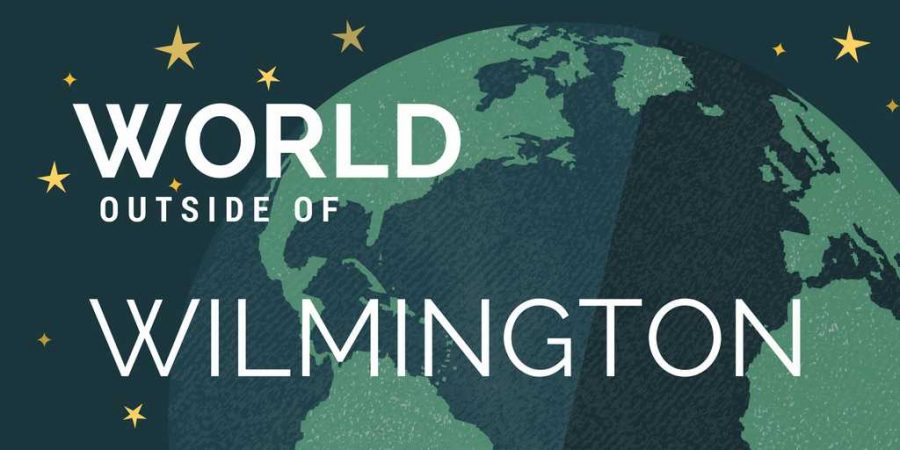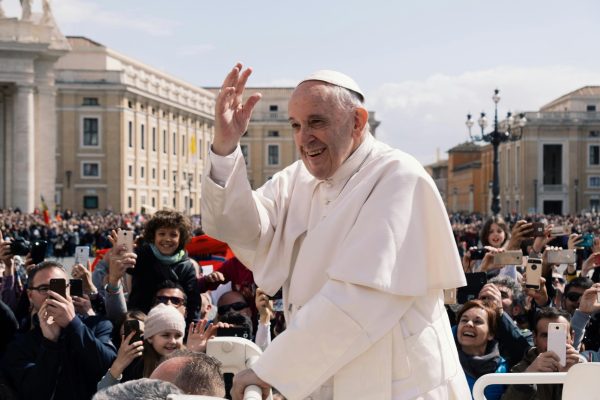News from the World Outside Wilmington
Tax-Reform Bill sparks protests in Jordan
On June 4, the streets outside of Prime Minister Hani al-Mulki’s office were filled with protestors as a new tax-reform bill and was met with widespread opposition in Jordan. Public opposition to the bill is accusing the government of covering up failed previous economic policies with this new legislature. Prime Minister al-Mulki has since resigned.
The demonstrations were orchestrated by Hirak Shabibi, or Youth Movement, along with 33 other Jordanian professional organizations and civil society groups. Their numbers conjoined numbers were estimated to be around 300,000.
The tax-reform bill, which has yet to be approved by parliament, would increase the percentage of citizens taxed from 4.5% to 10%, lower the taxable income rates for both families and individuals, and tax rates for banks have increased from 35% to 40%. This bill is mainly aimed at increasing governmental revenue dramatically, and reduce tax evasion, which runs rampant in Jordan.
Public opposition has made clear that taxes have already been increased, such as a 16% sales tax on goods and services, and that social services like education and healthcare have not been improved enough to warrant further taxation. Demonstrators have also pointed out how the Jordanian populous is suffering because of past failed economic policy, that instead of helping, only added to the enormous deficit of $700 million.
While 80 of the 130 members of parliament have signed a statement opposing the bill, the Jordanian government continues to ask members to pass it. Despite parliament agreeing with the demonstrations, those in the streets are using this opportunity to call for a complete reform of the political system.
Ethiopia accepts Peace Agreement to end border war with Eritrea
On June 5 Ethiopia fully accepted a peace agreement that was confirmed in 2002, officially ending a deadly border war with its northern neighbor, Eritrea.
Originally sparked in 1998, around 70,000 people have been killed over the course of two years over a territorial dispute.
Between 1962 and 1993, Eritrea existed as a province within Ethiopia; however, this changed following a vote in 1993 that separated Eritrea into its own sovereign state. Since this decision left Ethiopia landlocked, an issue of geographical dominance developed and eventually led to a full-scale war over the border town of Badme.
The town was later confirmed by a boundary commision to belong to Eritrea, which was not accepted by Ethiopia. Ethiopia refused to remove their troops from these previously contested lands and was thus seen as an illegal occupation of Eritrean soil.
Relations and movement towards peace between the two countries have become increasingly difficult since both governments have become distinctly more authoritarian. Eritrea, for example, became much more reclusive, along with their track for human rights.
However, in Abiy Ahmed’s, Prime Minister of Ethiopia, speech to Eritrea, he said he was “willing to resolve our differences through dialogue.” Accepting the peace agreement, along with releasing political prisoners and opening up telecommunications to Eritrea, Prime Minister Ahmed has begun building bridges over a history and region so steeped destroying them.
India bans all forms of plastic within Delhi
On June 5 India vowed to ban all single-use plastic by 2022 after millions of Indian citizens and policymakers came together in recent weeks to address the growing issue of plastic pollution.
India is the world’s third largest polluter, emitting 2,274 metric tons of carbon per year, but has made consist efforts to limit their negative impact on the environment according to a Reuters report in 2017.
India’s Prime Minister Narendra Modi has described the need to demonstrate how India can continue to advance economically in a way that is both efficient, and green.
“It is the duty of each one of use to ensure that the quest for material prosperity cannot lead to environmental degradation,” said Modi.
India has implemented several other initiatives against plastic waste in the past, both in 2016 and 2017. One such example occurred in Jan. 2017 when India banned all forms of plastic in the National Capital Territory (NCT) of Delhi, after three illegal mass burnings of plastics and other forms of waste at Indian rubbish dumps. This, however, has had minimal outcomes due to poor enforcement.
If a country with one of the world’s fastest-growing economies, and a population of 1.3 billion, can achieve such high environmental aspirations, then a revolutionary precedent would be set for other world powers, should they choose to act.
G7 Summit becomes conflictual over President Trump
The 44th annual Group of Seven (G7) summit was held in La Malbaie, Quebec and was unconventionally adversarial due to U.S. President Donald Trump. This has largely been done through the U.S. implementation of steel and aluminum tariffs on imports, and the recommendation that Russia be admitted back into the G7.
The G7, formerly the G8, is a gathering of the world’s strongest economies to discuss macroeconomic initiatives. This includes France, Germany, Japan, the UK, China, Canada, and the US.
The Russian Federation was a part of this group, but was suspended, and then left in 2014 due to their annexation of Crimea.
Despite this, Trump insisted that they be reinstated, even with a limited supply of national wealth and lack of an advanced economy.
Canadian Prime Minister Justin Trudeau later said in a press conference that the tariffs against Canada were “kind of insulting” and that “retaliatory tariffs” would be imposed. President Trump later responded in a tweet that Trudeau was “meek and mild” for doing so, notwithstanding the fact that he described the relationship with other G7 countries as “10 out of 10” just prior.
German Prime Minister Angela Merkel has described the meeting as both “sobering” and “depressing”, just a day before Trump met with North Korea leader Kim Jong Un, who he proceeded to describe as “a very talented man.” A stark comparison in treatment.
President Trump meets with North Korea leader Kim-Jong Un
On June 12, U.S. President Donald Trump shook hands with North Korean leader Kim Jong Un in Singapore and met to discuss the denuclearization of the Korean peninsula.
This historic meeting is the first time a US president has met with the pariah state of North Korea.
North Korea agreed to a loose commitment to work towards denuclearization, while the US has agreed to stop joint military demonstrations in South Korea. He agreed with Kim-Jong Un that the demonstrations were “provocative” and promised to stop the “war games.” North Korea also got the benefit of being recognized on the international stage, despite a dark history of human rights. Human rights were not discussed extensively during the meeting.
The existence of this summit has been unsure from the day of its conception. This was mainly due to US officials, such as John Bolton and Mike Pompeo, comparing North Korea to Libya, in reference to Muammar Gaddafi, who surrendered his nuclear arsenal and was then deposed. After an insulting response from Pyongyang, President Trump cancelled the meeting, but then later resumed plans.
Despite the exceedingly checkered road to Singapore, the meeting went smooth, with President Trump calling Kim Jong Un “a very talented man” who “loves his country very much.” President Trump has also said that he will eventually travel to Pyongyang, and will also invite Kim Jong Un to the White House, at an appropriate time.











